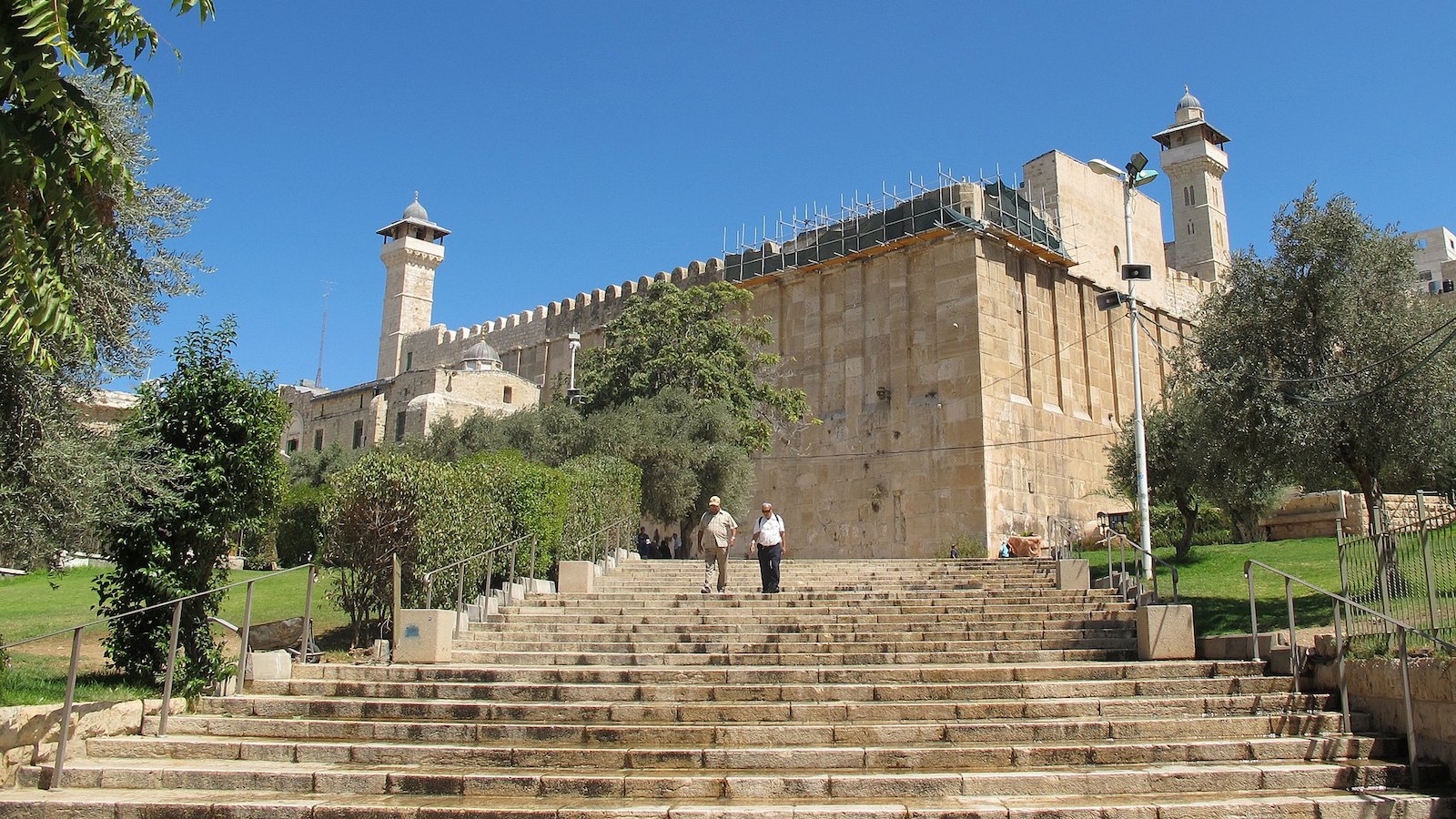Commentary on Parashat Chayei Sara, Genesis 23:1-25:18
The portion Chayei Sara — the “life of Sarah”– serves as a bridge between the story of Abraham and Sarah and the next generations. Sarah dies, and Abraham buys the cave of Machpelah in which to bury her. Abraham then sends his servant to find a wife for his son Isaac. The servant finds Rebecca, and then goes to meet her family, including her brother Laban. Laban will later figure prominently in the story of Jacob, Rachel, and Leah. At the end of the portion, Abraham dies and is buried by his two sons, Isaac and Ishmael.
In Focus
“Abraham was old, advanced in age, and God had blessed Abraham in everything.” (Genesis 24:1)
Pshat
After burying Sarah in the cave of Machpelah, Abraham turns his attention to finding a partner for Isaac, so that the family covenant may be continued. (One might say that worries about Jewish continuity are nothing new!) In between settling the last details of the burial and Abraham’s instructions to his servant, the tells us that Abraham was blessed with “everything,” bakol.
Drash
An obvious difficulty with our passage is that it seems out of place. Why is Abraham described as blessed with “everything” before he sends his servant out to find a partner for Isaac? Wouldn’t it make more sense after the servant comes back and Isaac has children? In fact, Rashi (medieval French commentator), among others, notices this problem and therefore links this passage to Abraham’s desire to find a wife for Isaac–this would make the blessing truly complete.

Help us keep Jewish knowledge accessible to millions of people around the world.
Your donation to My Jewish Learning fuels endless journeys of Jewish discovery. With your help, My Jewish Learning can continue to provide nonstop opportunities for learning, connection and growth.
On the other hand, some classic ic (rabbinic exegetical narrative) sources offer very different interpretations of Abraham’s blessing in “everything.” Midrash Rabbah is a compilation of midrashim dating back to the era of the Talmud; it records diverse opinions about this verse:
“‘. .and God had blessed Abraham in everything.’ R. Yehudah said: It means that God gave him a female. R. Nehemiah replied: [You mean] she was the center of the king’s household [i.e., Abraham’s] household, but there is no record of a blessing about her!
“Maybe ‘and God had blessed Abraham in everything’ doesn’t mean God gave him a daughter? R. Levi gave three [interpretations.] ‘Everything’–he ruled over his desires. ‘Everything’–that Ishmael achieved reconciliation in his [Abraham’s] lifetime. ‘Everything’-that his storehouse never lacked for anything. R. Levi said in the name of R. Hama: It means that God did not test him again.” (Genesis Rabbah 59:7, translation mine, based on notes in the Mirkin edition.)
R. Yehudah says that Abraham’s blessing was complete because he had a daughter. What I like about his midrash is that it softens the patriarchy of the Biblical narrative, which is so focused on sons. R. Yehudah points out that the blessing of “everything” comes from both sons and daughters together.
While I appreciate R. Yehudah’s effort to restore balance to the text, R. Nehemiah also has a good argument against this reading of it: We have no mention in the Torah of God making Abraham blessed with a daughter, and lots of mentions of the blessing of a son.
Three Reasons
R. Levi offers three reasons why Abraham’s blessing was described as “everything.” One, Abraham achieved spiritual discipline and self-knowledge, controlling his passions and desires. Two, that Ishmael and Isaac were reconciled in their father’s lifetime. This interpretation is based on the traditional rabbinic understanding of Ishmael as destructively jealous of Isaac, yet coming together with his brother to bury their father, in verse 25:9. The rabbis say that Ishmael’s reconciliation with Isaac happened before Abraham died; there is scant textual evidence for this, but it’s a lovely midrash. Finally, R. Levi says that Abraham was blessed with sufficient sustenance.
R. Levi then offers one last theory of Abraham’s extraordinary blessing: that his tests were concluded with the near-sacrifice of Isaac, in Chapter 22. There is a strong midrashic tradition that Abraham had 10 tests, beginning with the call to leave his homeland, and ending with the Binding of Isaac — R. Levi points out that having calm and peaceful time, without a new crisis every day, is a complete blessing in and of itself!
Turning R. Levi’s words around, we might point out that calling something a “blessing” is to name it as a spiritual value or goal- we don’t feel “blessed” by things we don’t really value. R. Levi is then setting out a vision of the ideal life, a life that encompasses emotional, material, and spiritual goals.
Abraham, he says, had deep self-knowledge and discipline; was able to experience harmony in his family; had enough material possessions so that he never suffered want; and came through life’s challenges with a sense of peace, a sense that the “tests” were not so dramatic anymore.
“Everything,” in R. Levi’s interpretation, means all aspects of life, both the inner world and outward reality. It seems to imply a harmony between one’s spirituality and one’s situation, which we might note Abraham is not described as having till he was “advanced in years.” Thus R. Levi teaches us not only about our sacred texts, but what might become our sacred values.



